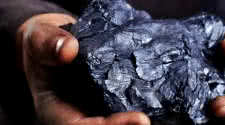Is Boron Anabolic or Not?

Advanced Supplements & Health Science
Boron, a little-known trace mineral, attracted the attention of bodybuilders after a 1987 study showed that it appeared to increase testosterone levels. Initial enthusiasm for the mineral was soon dampened as details of that research were revealed. The study subjects consisted
of 12 older women. The normal level of testosterone in older women bears little relation to that of active younger men, despite the fact that the ratio of testosterone to estrogen increases with age in most women. As women grow older, their ovaries (the primary source of estrogen)
produce less of the hormone.
Men of all ages produce anywhere from 10 to 100 times more testosterone than women, depending on the research source consult, subsequent examination of the boron/testosterone relationship in men have resulted in paradoxicated findings. For example, one study, conducted with male
subjects, found that a daily oral dose of 10 milligrams (mg) of boron raised blood levels of both testosterone and estrogen. Other investigations, however, using male bodybuilders as subjects, failed to find any increase in testosterone after boron supplementation. Nonetheless,
researchers who have studied the chemistry of boron have theorized that the mineral might increase testosterone levels in humans by participating in a reaction that results in adding hydroxyl groups - including testosterone, estrogen and activated vitamin D to steroid hormones.
Without those additional hydroxyl groups, steroid hormones would be rapidly degraded in the body.
A recent animal study, published in Nutrition Research (17:523-31, 1997), considered the effects of boron on steroid hormones in rats. The objective of this work was to * observe how supplemental boron affects steroid synthesis and blood-lipid levels. The latter is important
because previous research has showed that elevated testosterone levels often lead to lower amounts of protective high-density lipoprotein (HDL), or "good" cholesterol , This is a common occurrence among anabolic-steroid users. Nutrition Research reported that giving rats a
daily dose of two mg of 74. boric acid, a form of boron, for four weeks led to a significant increase in both testosterone and * activated vitamin D. The elevation in activated vitamin D, a hydroxylated vitamin, is considered proof of boron's hydroxyilation activity drop in HDL,
total cholesterol and blood-triglyceride (fat) levels after two weeks.
These effects were transient, however, as only the HDL-3 component (the more active part of HDL) remained low after four weeks of boron supple mentation From this study, it was determined that boron lowers HDL, as do anabolic steroids, and apparently increases testosterone
production at least in rats. When humans ingest extra boron, however, blood fats aren't affected, as they are in rats. This is thought to be due to the conitan increase in testosterone and estrogen induced by the min era in humans. While testosterone lowers HDL levels, estrogen
raises it; thus, each steroid cancels out the lipid effects of the other. It would seem prudent for men concerned about cardiovascular health to eschew increased testosterone In fact, though, just the o opposite may be true: Testosterone may help protect against cardiovascular
disease, as indicated by a study on rabbits (Circulation, 91:1154-60, 1995). In that re search testosterone administration resulted in a potent relaxing effect on coronary arteries.
Should bodybuilders consider taking boron as a supplement? Although the mineral's hormone increasing properties remain questionable boron does help the body retain both calcium and magnesium No nutritional requirement has been set for boron, but the suggested safe intake is
about three mg a day. The best way to ingest boron is through solid food, the richest sources of which are fruits and vegetables If you consume five servings a day of those foods, you are assured of getting all the boron you need. At the same time, you might want to hedge your
bets; future studies might prove that boron does indeed raise testosterone levels in men